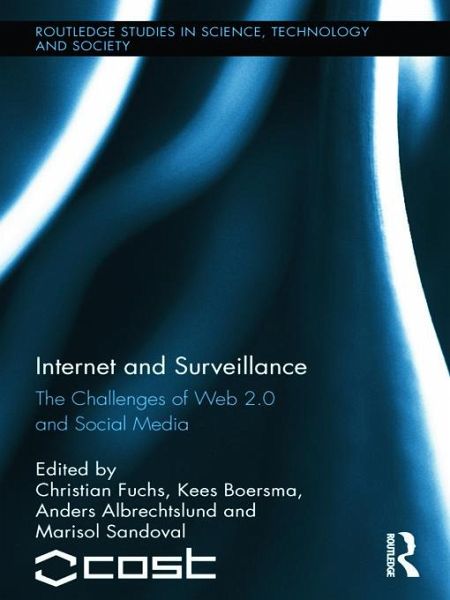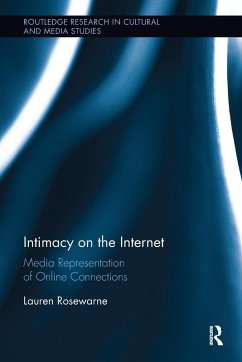
Internet and Surveillance
The Challenges of Web 2.0 and Social Media
Herausgeber: Fuchs, Christian; Albrechtslund, Anders; Boersma, Kees
Versandkostenfrei!
Versandfertig in 1-2 Wochen
63,99 €
inkl. MwSt.
Weitere Ausgaben:

PAYBACK Punkte
32 °P sammeln!
The Internet has been transformed in the past years from a system primarily oriented on information provision into a medium for communication and community-building. The notion of "Web 2.0", social software, and social networking sites such as Facebook, Twitter and MySpace have emerged in this context. With such platforms comes the massive provision and storage of personal data that are systematically evaluated, marketed, and used for targeting users with advertising. In a world of global economic competition, economic crisis, and fear of terrorism after 9/11, both corporations and state insti...
The Internet has been transformed in the past years from a system primarily oriented on information provision into a medium for communication and community-building. The notion of "Web 2.0", social software, and social networking sites such as Facebook, Twitter and MySpace have emerged in this context. With such platforms comes the massive provision and storage of personal data that are systematically evaluated, marketed, and used for targeting users with advertising. In a world of global economic competition, economic crisis, and fear of terrorism after 9/11, both corporations and state institutions have a growing interest in accessing this personal data. The contributions in this book provide a comprehensive look at issues that are redefining our entire concept of privacy and surveillance.














